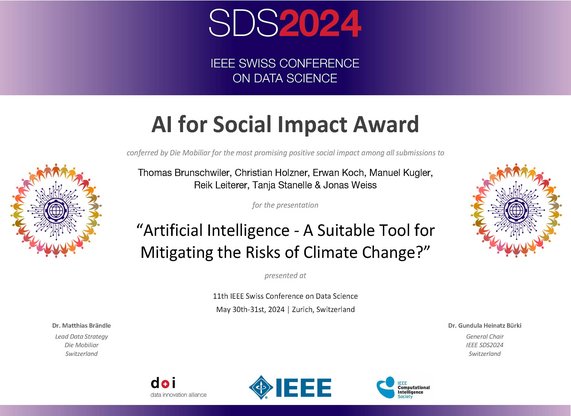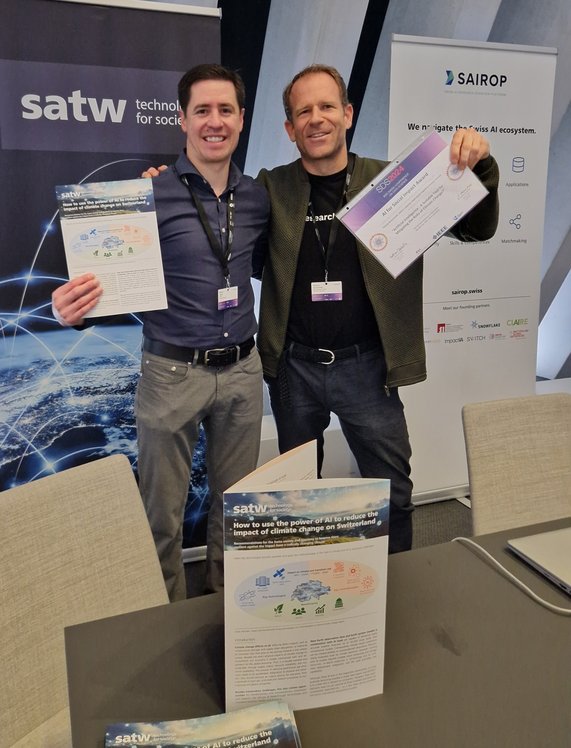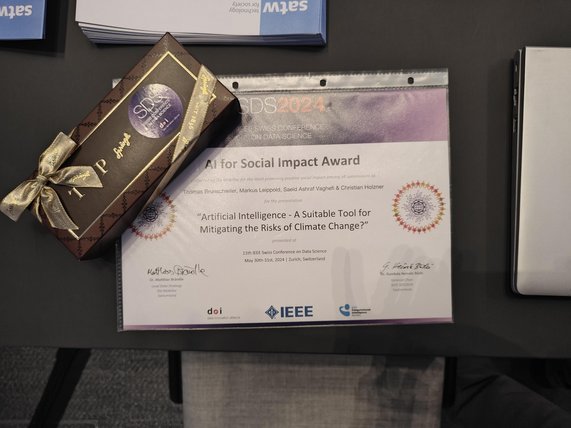Translated with DeepL
In collaboration with IBM and under the leadership of the Swiss Academy of Engineering Sciences SATW, around 70 experts and scientists from 30 renowned Swiss universities, authorities and institutions have contributed to this new publication. The new SATW study won the 1st AI for Social Impact Award at the Swiss Conference on Data Science SDS.
The aim of the study was to find out how new technologies can reduce the negative effects of climate change in Switzerland and make our society and economy more resilient. The experts have high hopes for the latest developments in artificial intelligence (AI) and satellite-based earth observations to overcome the various climate challenges. In combination with AI tools, the latest measurement methods and technologies can deliver a thousand times faster and better analyses, predictions and images than just a few years ago.
The Factsheet contains seven recommendations for action for decision-makers from politics and administration, universities and funding institutions as well as private companies. Case studies in the field of CO2 emissions monitoring and the identification of urban heat clusters show how the technologies mentioned can provide concrete benefits and which recommendations would support their use and further development.
The factsheet is an abridged version of the Whitepapers "How to use the power of AI to reduce the impact of climate change on Switzerland", which was produced by more than 70 experts and scientists. The authors include Thomas Brunschwiler and Jonas Weiss (IBM Research), Erwan Koch (UNIL), Reik Leiterer (Data Innovation Alliance) and Tanja Stanelle (EBP); the project management had Manuel Kugler and Christian Holzner (SATW) inne.
If you would like to find out more, we would be happy to put you in touch with a project team or expert from our network.
Further information on the topic of AI and the environment can be found in our focus topics: AI, Energy and the environment.


